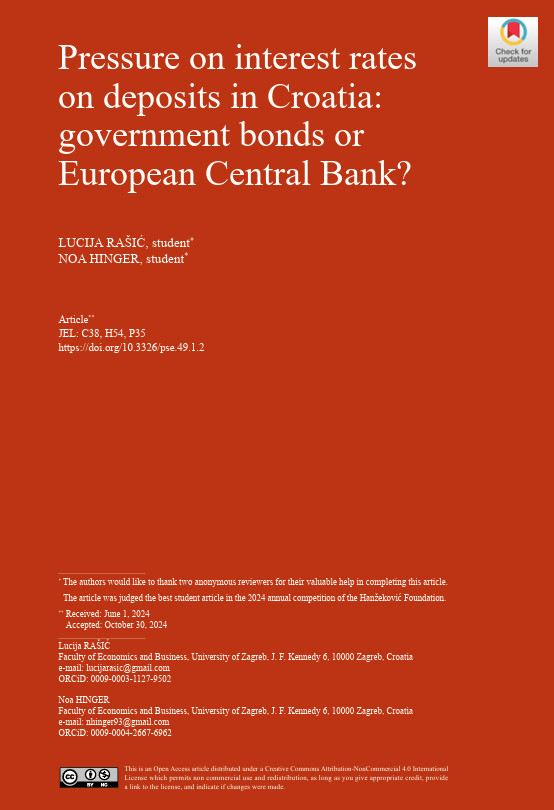Pressure on interest rates on deposits in Croatia: government bonds or European Central Bank?
DOI:
https://doi.org/10.3326/pse.49.1.2Keywords:
factor analysis, government bonds, interest rates, deposits, regression analysis, CroatiaAbstract
The paper analyses the importance of government bonds as the key instrument on the capital market and their effect on interest rates on deposits in Croatia. February 2023 saw the first government bonds issued in Croatia, which provided citizens with safe investment opportunities, especially following low interest rates periods across Europe that continued several months into Croatia’s accession to the euro area. The authors define two hypotheses regarding the effect of government bonds and the European Central Bank (ECB) on interest rates, trying to determine whose relative effect was greater of the two. Combining principal component analysis and regression analysis, the authors determine that government bonds have a limited effect on interest rates, whereas ECB’s effect is much more significant. The results suggest a complex dynamic between fiscal and monetary policy, highlighting proactive government measures for stimulating investments and development of the Croatian capital market.

Downloads
Published
Issue
Section
License
Copyright (c) 2025 Lucija Rašić, Noa Hinger

This work is licensed under a Creative Commons Attribution-NonCommercial 4.0 International License.








